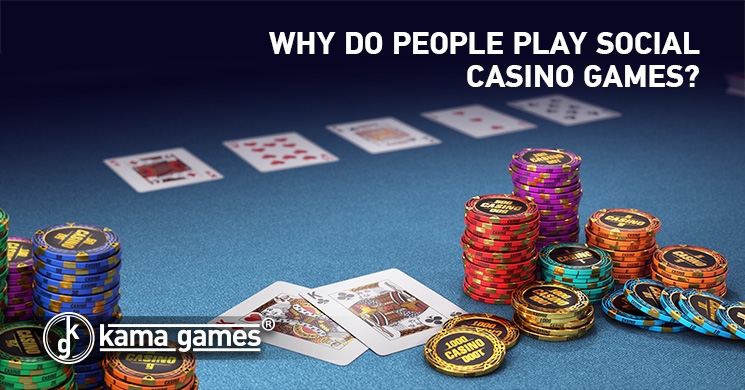
Social casino games have enjoyed phenomenal growth in recent years. For our part, KamaGames titles have been downloaded well over 100 million times, with that user-base steadily climbing every month, and while we’re one of the biggest players on the block, we’re not the only one.
From the Danube to Dubai and everywhere in between, literally, millions of new social casino gamers are downloading and engaging in the games every month.
One of the biggest misunderstandings when it comes to social casino games is that they involve gambling. In fact, Pokerist (and games like it) enjoy huge success even in countries where gambling is strictly prohibited. So what’s the appeal?
In short, it’s the element of competition. The social aspect is also definitely a factor. And, perhaps most importantly, people play for the love of the game.
What’s the deal?
Poker and gambling are often mentioned in the same breath, written in the same headline or living under the same roof. However, while the glittering casinos of Macau and Las Vegas (and their onscreen counterparts) portray poker as a gambling tool, it’s a misleading and often inaccurate picture.
Indeed, around the world, card games, especially poker, are frequently played for pennies or matchsticks. It’s impossible to quantify the numbers for casual, home games of poker, but its value as a game for its own sake is undeniable. Poker is a hobby first and a gambling mechanic at a distant second.
Poker has all of the qualities one could ask for in a game; it requires more luck than skill, it’s easy to pick up, and yet it also has a depth that makes it appealing as a lifelong game. You can continue to hone your poker skills for literally your entire life.
Additionally, like Risk and Magic: The Gathering, poker in videogame form works just as well as in analogue: The gameplay is the same, and it removes much of the game’s admin.
In many poker videogames, including Pokerist, players have access to a list of winning combinations (Full House, Flush etc) and can cross-reference them with the cards they’ve been dealt. This removes some of the guesswork and memory associated with analogue poker-playing and helps players to improve
When playing a social, online poker game (like our Pokerist) you only have a few seconds to decide what to do. This is a feature, not a bug: With other real-life players waiting their turn, it makes sense to speed things up. An added bonus is that it adds a sense of momentum and excitement to a traditionally sedate game!
Some of our players take part because of the game-play, while others use it to hone their skills. Many, however, are here for the social aspect.
Poker – a social network
Long before the first app games, poker has been a social pursuit. Just like in the online games, real-life poker involves reading opponents, healthy competition and socialising.
Games like Pokerist are a combination of both gaming and social media.
Some poker games (including ours) have emojis and virtual gifts that players can send to one another. Happy for someone’s win? Pop them an emoji. Want to encourage a faster game? Send a “gift” of a hot cup of coffee. Want to show a little kindness? Throw over a big or small “gift” (a t-shirt, say, or a yacht).
Some players communicate with conventional text or even audio communication. Others have put their own spin on their use of emojis: They use the ‘pray’ emoji when waiting for their cards to be dealt, for instance, or if they think their hand is a “dog” they can add an adorable pooch picture. Cigar pics are used to show celebration or unwinding during a game, while a picture of a fly could be a puny hand, a pesky player or a compliment (“pretty fly”).
These images and emojis are not replacements for language – they’re an augmentation, an added flavouring.
Bets are off
A paradox of social casino gaming: While games in this genre are believed to be gambling, when in fact, part of their appeal is that they are not.
With gambling removed, poker is just poker: It’s still tense, exciting, skill-based and user-friendly. And without the real-money gambling element, it has all of those elements without the real-world risk.
